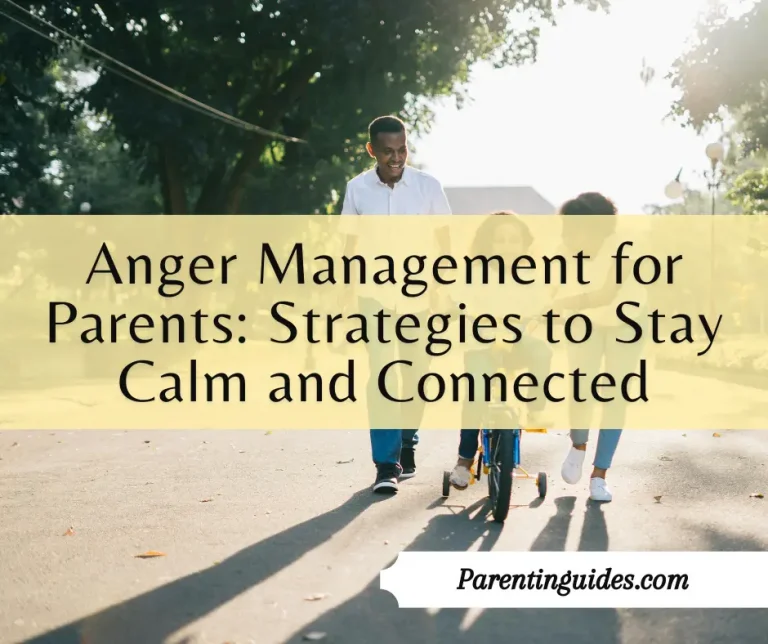As a mother, I’ve learned that the bond between a parent and child is pivotal. It is deeply influencing how children view themselves and the world around them. My husband and I consistently emphasize that how parents should treat their children with respect and understanding is not just beneficial but essential for their development into well-rounded adults.
This article explores several crucial strategies that outline how parents should treat their children. These strategies are based on our personal experiences and have profoundly shaped our interactions with our children, guiding them toward becoming confident and empathetic individuals.
Why is understanding how parents should treat their children so vital? How we interact with our kids sets a lifelong template for them. It influences their social interactions, emotional well-being, and their resilience in facing life’s ups and downs. By sharing our journey and insights, I aim to help other parents see the lasting impact their behaviour can have on their children.
Firstly, we focus on establishing open communication. It’s crucial that children feel they can talk openly and are listened to with respect. This section will detail how parents should treat their children as active participants in family discussions, encouraging them to share their thoughts and feelings.
Next, we discuss setting healthy boundaries, a fundamental aspect of showing respect and ensuring security. Here, I will share how parents should treat their children with clear and appropriate limits and how important it is to respect their personal space.
The importance of role modelling respectful behaviour cannot be overstated. Children learn by observation, and how parents should treat their children sets a powerful example. This part will illustrate how acknowledging our own mistakes can enhance mutual respect.
Finally, supporting independence and growth discusses how parents should treat their children to foster self-reliance and problem-solving skills, crucial for their personal development.
Throughout this article, I will delve into how parents should treat their children with the utmost respect and understanding. Here, we are aiming to empower other parents to foster nurturing and effective parenting styles.
Establishing Open Communication in How Parents Should Treat Their Children
Importance of Listening
In our home, my husband and I have found that truly listening to our children is key to understanding their needs and feelings. Active listening involves more than just hearing their words. It means paying full attention, showing genuine interest, and responding in a way that makes them feel valued. This approach is essential in how parents should treat their children because it builds trust and helps us grasp not just what they are saying. But also what they might be struggling to express.
When we listen actively, we look at our children, nod our heads, and occasionally repeat what they’ve said to confirm our understanding. This practice shows them that their thoughts and emotions are important to us. It’s crucial to teach parents how to treat their children with the respect and attention they deserve. By demonstrating that we care about their perspectives, we encourage them to open up more and share more freely, strengthening our family bond.
Encouraging Dialogue
Creating an environment where our children feel safe to speak up is a fundamental aspect of how parents should treat their children. To do this, my husband and I use a few simple strategies. We make sure to initiate conversations regularly. So, we are asking about their day and their interests rather than waiting for them to come to us. We also ensure that we are approachable, maintaining a calm and inviting demeanour.
We often use open-ended questions that require more than yes or no answers. It encourages our children to think and express themselves more deeply. For example, instead of asking if they had a good day at school, we ask what they learned that was interesting. These practices are vital in teaching parents how to treat their children as thinking, feeling individuals who deserve to have their voices heard.
Ensuring that children know their opinions are valued and respected makes a significant difference in how comfortable they feel sharing their thoughts and concerns. This open dialogue is critical in fostering a nurturing home where everyone feels heard and valued.
Handling Difficult Conversations
Handling difficult conversations with empathy and respect is crucial to how parents should treat their children. When tough topics arise, my husband and I make it a point to keep our emotions in check to provide a safe space for our children to express theirs. We approach these conversations with patience and openness, ensuring that our children understand they are not in trouble for their thoughts or questions.
One strategy we use is to affirm our children’s feelings before we respond to their words. We might say, “I can see this is upsetting you,” or “It sounds like you’re excited about this.” Acknowledging their feelings first helps them feel understood and valued, which is important in how parents should treat their children during challenging discussions.
We also make sure to keep these conversations age-appropriate and clear. We avoid using complex language or vague terms, which can be confusing. By maintaining clarity and empathy, we guide our children through difficult discussions, teaching them how to manage emotions and conflicts constructively. This approach is essential in establishing how parents should treat their children with respect and understanding, even when facing challenging situations.

Setting Healthy Boundaries in How Parents Should Treat Their Children
Benefits of Boundaries
In our family, setting clear boundaries has always been a priority. My husband and I have learned that establishing limits is crucial in how parents should treat their children because it provides them with a sense of security. Children feel more confident and secure when they know what is expected of them and what the rules are. This structure helps them navigate their choices and behaviours more effectively.
Boundaries also improve relationships within the family. When rules are clear, there’s less confusion and fewer arguments. For instance, when our children know their bedtime on school nights, they are less likely to protest because the expectation is set and consistent. This clarity helps in maintaining a peaceful and orderly home environment, which is essential for everyone’s well-being.
Setting boundaries teaches children how to interact with others and respect limits, which are vital skills for their future relationships. This practice is a fundamental aspect of how parents should treat their children, promoting not only discipline but also mutual respect between parent and child. It leads to healthier interactions and stronger family bonds.
How to Set Boundaries
Setting boundaries effectively requires clarity and consistency, which are key aspects of how parents should treat their children. My husband and I strive to make our rules clear and understandable for our children, ensuring they are age-appropriate and reasonable. For instance, we explain that screen time is limited on school nights to help them get enough sleep and perform well at school.
When introducing a new boundary, we discuss it with our children, explaining why it’s important and how it will benefit them. This discussion helps them understand the purpose behind the rule and makes them more likely to follow it willingly. It’s important to teach parents how to treat their children with respect, involving them in the decision-making process to some extent.
Consistency is crucial in enforcing boundaries. We make sure to apply rules in the same way every day and across similar situations. This consistency helps our children learn what to expect and understand that the boundaries are serious and important, not arbitrary.
Respecting Personal Space
Respecting personal space is an integral part of setting healthy boundaries, and it teaches children about privacy and respect for themselves and others. In our home, we ensure that our children have their own spaces where they can keep their belongings and have time alone when they need it. This respect for their personal space is a clear example of how parents should treat their children, emphasizing the importance of individuality and personal comfort.
We teach our children to knock on doors before entering a room, whether it’s ours or their siblings’. This practice instils a sense of respect for privacy and boundaries from a young age. It’s crucial in demonstrating how parents should treat their children and others, fostering an environment of mutual respect.
Additionally, we encourage our children to express when they need privacy or time alone, and we respect their requests. This openness allows them to feel secure in knowing that their personal needs are valued and respected. By setting this example, we show our children how they should treat others, reinforcing the lessons of respect and personal boundaries.
Role Modelling Respectful Behaviour in How Parents Should Treat Their Children
Being a Role Model
As parents, my husband and I understand that one of the most effective ways to teach our children how to behave is by showing them through our actions. Demonstrating respect in how we treat each other and those around us serves as a powerful lesson in how parents should treat their children and others. For example, we always make sure to speak kindly and listen attentively when interacting with each other and with our children.
We also show respect through small gestures like saying “please” and “thank you,” and by being considerate of each other’s feelings and needs. This behaviour sets a standard in our home, emphasizing that respect is a fundamental part of all relationships. Parents must remember that how they treat their children and others is constantly observed and often imitated by their children. By acting respectfully, we are not just telling our children how to act. Here, we are showing them.
Consistency in Behaviour
Stress the importance of consistency between what parents say and do. Consistency is key in parenting. My husband and I strive to ensure that our actions always match our words because this consistency is essential in how parents should treat their children. It helps to build a stable environment where children feel secure because they know what to expect from their parents.
For instance, if we promise to spend time with them after dinner, we do it. This consistency shows our children that they can trust us, which is vital for their sense of security and well-being. It also teaches them about the importance of keeping one’s word, which is a critical life lesson. In demonstrating how parents should treat their children, we must adhere to the same rules and standards we set for them. This not only reinforces the rules but also shows respect for the standards we’ve set as a family. It further promotes a respectful family culture.
Apologizing and Admitting Mistakes
No one is perfect, and admitting this is a powerful way to teach respect and trust. In our family, when my husband or I make a mistake, such as raising our voice or missing a school event, we apologize to our children. This openness in acknowledging our faults is crucial in demonstrating how parents should treat their children.
Apologizing shows our children that it’s okay to make mistakes, as long as you own them and learn from them. This builds a foundation of trust and respect, as our children understand that we value honesty and integrity. It also teaches them to be accountable for their actions and to handle their own mistakes with grace. This approach is fundamental in showing how parents should treat their children. It is by fostering an environment where everyone feels safe to be imperfect and where growth and learning from errors are encouraged. This respect for the learning process and personal development is what we hope to instil in our children as they grow.

Nurturing Emotional Intelligence in How Parents Should Treat Their Children
Understanding Emotions
In our family, my husband and I prioritize helping our children understand and express their emotions. This is a fundamental part of how parents should treat their children, as it prepares them to handle their feelings wisely throughout their lives. We start by naming emotions during different situations. For instance, if our child is crying because they can’t find their favourite toy, we might say, “It sounds like you’re feeling frustrated and sad right now.”
We also encourage our children to talk about their feelings. We ask them how they feel about certain events, like a day at school or a family outing. This discussion helps them become more aware of their emotions and learn to express them clearly and respectfully. By actively engaging in conversations about feelings, we show our children that their emotions are important and valid. This is key to how parents should treat their children, creating a supportive environment where they can learn to navigate their emotional world.
Developing Empathy
Discuss methods to encourage empathy towards others, including siblings and peers. Developing empathy is another critical aspect of how parents should treat their children. My husband and I teach our children to consider the feelings of others, which helps them build stronger, more caring relationships. We often use everyday situations as teachable moments. For example, if one child takes a toy from another, we explain how this might make their sibling feel sad or upset.
We also model empathy by expressing our feelings and reactions in a way that our children can understand. We might say, “When I see you helping your brother, it makes me feel happy because you are being kind.” This not only teaches them about empathy but also shows them how their actions impact others.
Additionally, we encourage our children to think about solutions when they or someone else is upset. We ask questions like, “What do you think would make your sister feel better?”. This encourages them to think from another person’s perspective and develop empathy. It is simply essential in how parents should treat their children.
Managing Stress and Anger
Teaching children to manage stress and anger effectively is crucial to how parents should treat their children. In our home, we use several strategies to help our children deal with these feelings constructively. One effective method is teaching them to take deep breaths when they start to feel overwhelmed or angry. We practice this together by taking slow, deep breaths to calm down.
We also provide them with quiet spaces where they can go to feel safe and calm down on their own. These might be a corner with pillows and books or a spot with some of their favourite toys. This space is respected by everyone in the family, reinforcing the importance of managing emotions independently.
Furthermore, we talk about feelings regularly, which helps our children understand that it’s okay to feel stressed or angry sometimes. We discuss what might trigger these emotions and how to handle them better in the future. By openly discussing these topics, we show our children that managing emotions is a normal part of life. Here, we provide them with tools to do it effectively, which is essential in how parents should treat their children.
Supporting Independence and Growth
Encouraging Self-reliance
My husband and I focus on teaching our children how to be self-reliant by assigning them tasks suited to their age. Simple responsibilities like choosing their clothes or helping with meals make them feel capable and trusted. We believe that how parents should treat their children involves letting them handle tasks independently. Simply it boosts their confidence and sense of responsibility. This approach encourages them to take initiative and learn from their experiences. It is also essential for growing into independent adults.
Praising Efforts, Not Just Results
We always emphasize effort over outcomes to help our children develop a growth mindset. Praising them for trying hard, even if they don’t succeed at first, teaches resilience. This method shows how parents should treat their children, focusing on the process rather than just the result. Such encouragement helps them understand that persistence is valuable and that all efforts contribute to learning and improvement. It’s a powerful way to build their confidence and keep them motivated.
Facilitating Problem-Solving Skills
To develop our children’s problem-solving skills, we encourage them to think through the challenges they encounter. This involves discussing possible solutions and weighing their consequences, which sharpens their decision-making abilities. It’s crucial in how parents should treat their children, as it prepares them for real-life situations. By guiding them in facing small, manageable problems now, we help them build the skills to tackle bigger challenges later. This training not only enhances their critical thinking. It also fosters a sense of achievement when they find solutions themselves, reinforcing their problem-solving capabilities.

Conclusion
Throughout this article, we have explored various strategies on how parents should treat their children to foster a nurturing and supportive environment. My husband and I have shared our personal experiences in hopes of providing other parents with practical advice. We also shared insights into the profound impact their actions can have on their children’s development.
Respect and understanding are cornerstones of parenting. As we discussed, establishing open communication, setting healthy boundaries, role modeling respectful behaviour, nurturing emotional intelligence, and supporting independence and growth are all crucial in how parents should treat their children. These strategies are not just methods. They are reflections of the values we wish to instill in our children as they grow.
By practicing these approaches, parents can build strong, lasting relationships with their children, filled with mutual respect and understanding. It’s about creating a foundation that supports children’s emotional and social well-being, helping them become confident, capable, and caring adults.
In our home, these practices have not only helped our children thrive. Thet have also enriched our family life, bringing us closer and making our journey together more meaningful. We encourage all parents to embrace these principles in how they treat their children. Let us remember, how we treat our children sets the tone for their entire lives. It’s a responsibility and a privilege to guide them with love, respect, and understanding.









